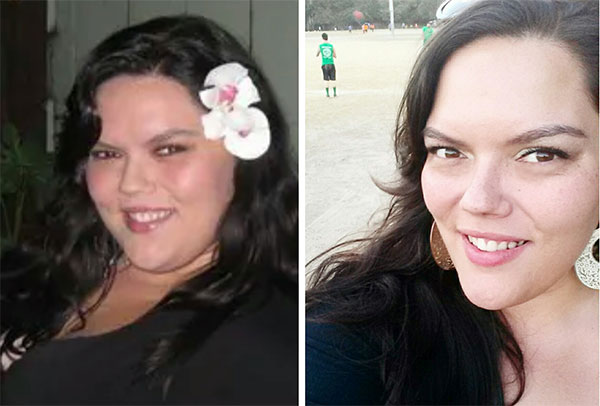Subscribe: RSS
Click play to listen to this interview.
Britt had gastric bypass surgery and went through some major emotional changes. I should really call them mindset changes. She went from someone that took things as they were to someone who chooses what she accepts. And if she doesn’t accept it, she speaks up.
It’s interesting to note that we’ve had multiple bariatric surgery patients on the podcast talk about how they experienced a similar mindset change.

HONESTY AND DIVORCE AFTER BARIATRIC SURGERY
Ever since kindergarten Britt knew and accepted that she was the fat kid. Her parents put her on diets at a young age. She started hiding food. As she got older hiding food turned into binge eating. By 8th grade she started purging. By high school it became full blown bulimia.
By college Britt knew she needed to get healthier. She worked on self-confidence and tried to build her self-esteem. She tried different diets and saw her weight drop and then go right back up.
After college Britt continued her roller coaster of ups and downs with food.
She always thought that she could lose weight on her own. But if she could why hasn’t she after 29 years of trying? Eventually she decided that she needed to talk to someone about weight loss surgery.
After Gastric Bypass
As is common with any bariatric procedure, the first few weeks are emotional. Why? Because you start to lose weight at a fast rate. As you lose weight your hormone levels change and this can produce crying. It can also produce anger and other emotions. In Britt’s case she cried. She cried over things that she normally wouldn’t think twice about. For her, this lasted a few weeks before things leveled off and she got back to normal.
Then, according to Britt, her perspective started to change. She started questioning behaviors that she previously allowed. She started questioning relationships and the people she surrounded herself with.
“I had a little bit of a pushover mentality. And that started changing.”
She has historically always been very diplomatic and never wanted to rock the boat. But now she’s decided to be honest, blunt and forward with everything. Britt says that you have to become honest with yourself after bariatric surgery.
Britt says that you have to become honest with yourself after bariatric surgery. You are forced to take a hard look at yourself and question not only your food choices but why you choose to be unhealthy.
Divorce After Surgery
Marriages are complex.
Britt is currently separating from her husband. While Britt admits her and her husband would have eventually divorced, her bariatric surgery forced the issue. Prior to surgery she didn’t want to rock that boat. She didn’t want to admit that her relationship was unhealthy. But weight loss surgery forced an honest life assessment.
When Britt honestly looked at her food choices, her lifestyle choices and her relationships, she had to make changes. And Britt decided that she put up with too much for too long.
It requires you to be blunt and honest with yourself. To look at everything in your life and say, is this healthy? It can and often does change one’s outlook on life. In Britt’s case it gave her the self-confidence to look at all aspects of her life and say, ‘Should I be doing this?’
What Would Britt Tell Others?
- Be gentle with yourself and others.
- Changes may occur that you’re not expecting. People hear about how marriages can be affected after weight loss surgery. One of the biggest misconceptions is that it’s a physical change. One partner becomes insecure with the other partner’s weight loss. But that’s not always the case. For Britt is was a mental change.
- Schedule therapy sessions a few weeks after surgery.
- Go easy and be aware that a lot of things will change.
Tips or Tricks
- Drink water. It’s easy to become dehydrated after surgery. 64 oz. per day.
- Go easy. Stay away from the scale.
- Don’t compare yourself to others.
- It’s a journey and you’re not going to wake up one day and be at your target weight. It’s a re-learning of your relationship with food.
- This article has a full list of gastric bypass foods depending on your post-op stage.
Conclusion
Self-worth, relationships, fear, and emotions are tied to the way we see ourselves. Divorce can happen after weight loss surgery. And it’s often blamed on our spouse’s insecurity.
Weight loss surgery forces you to look at every aspect of yourself. Habits, choices, what you’re willing to accept. Make the most of your appointments with your psychologist. Weight loss surgery can help remove you from toxic relationships. It can also make you appreciate your spouse and foster a stronger relationship built on honesty and support.
Be prepared for change.


